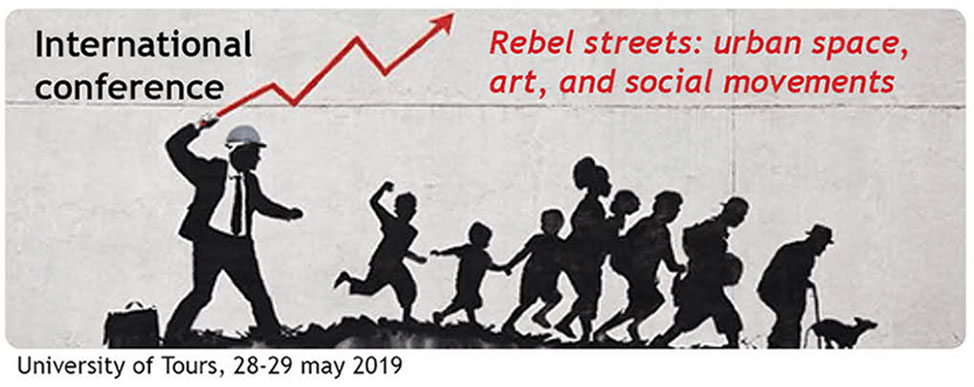
|
|
|
Call for papers
International Conference
Art’s presence in the urban space is dynamic and interactive that communicates the complex forms of globalization, cultural hybridity, and plurality in contemporary daily life—where we experience politics. The new forms of agencies and strategies of urban creativity in the form of graffiti, wall paintings, yarn bombing, stickers, urban gardening, street performances, tactical art, creative campaigns and theatrical actions—among others—demand an active spectatorship (Whybrow, 2011) and have a growing power to renegotiate space for new forms of political participation. Social mobilization in the neoliberal cities constitute a common theme in texts inspired by Henri Lefebvre’s colossal work on production and reproduction of urban space (Lefebvre, 1968) and David Harvey’s book Rebel Cities (Harvey, 2012). Urban creativity has a broad scope of interests from a clear “right to the city” perspective with its ecological, spatial, and ideological agenda to the struggles of civil rights, and individual and collective freedoms. While, this aspect has opened the research into recognizing street art as a genre for “political democratization” (Bengtsen & Arvidson, 2014), the growing significance of art in social and spatial justice movements has been neglected by both social movement theory and art theory. Thus, the analysis of art and urban social movements is still academically insufficient, although art is well-recognized to have had an essential part during the Egyptian and Tunisian revolution (Abaza 2016), Spanish Indignados (Ramírez Blanco 2018), Greek Aganaktismenoi movement (Tsilimpoudini 2016) and the Gezi Uprising (Tunali 2018). Rebel Streets conference aims to shift the focus from a rather disempowering critical perspective towards urban art to one that stresses its aesthetical and political powers as a part of the urban social resistance. We ask participants to investigate the hypothesis that the aesthetic reconfiguration of the neoliberal city does not only allow for a hegemonic restructuring of the urban environment, but it also facilitates the growth of counter-hegemonic resistance. Critical inquiries should adhere to one of the three areas of the conference theme: 1. Street art and the everyday life in the city We invite papers from all humanities and social sciences disciplines that investigate the way art:
Rebel Streets conference will engage in the questions that scrutinize the complex relationships between urban space, social resistance and art, such as: How can art in the public space be used as a weapon of resistance and a means of reconstruction? Are street artists obliged to be a part of the urban resistance against neoliberalism? How does art respond uniquely to gentrification? How do public artistic expressions reveal, delimit or question the complexity of neoliberal urbanization? How can we interpret the poetics of urban art from the perspective of subcultures, freedom of expression, and the limits of criminality? How is street art activism perceived by the authorities, politicians, businesses, and the wider public? What prompts urban artists to communicate with urban dwellers with their marks on the city’s surface? What kind of public should critical urban art try to constitute and what kind of public spaces are needed to that effect? What can we learn from urban art about visual resistance in the interplay with political power structures? Under what conditions could art become effective in reclaiming the cities as sites of resistance and change? The 2-day conference will be held on the campus of the University of Tours France on 28-29 May 2019. There is 25 Euros attendance fee and the presenters are expected to cover their travel and accommodation expenses.
The paper proposals and presentations can be in English or French, but the conference language will be in English and no interpretation services will be provided. Interested participants are requested to submit an abstract of maximum 500 words accompanied with a 2-page CV no later than 15th December 2018 to the organizers: Tijen Tunalı tijen.tunali@univ-tours.fr and Gülçin Erdi gulcin.lelandais@univ-tours.fr. The final papers (3500-4000 words) are expected to be submitted by 1st April 2019. The scientific committee will notify the authors of paper acceptance or non-acceptance in late January 2019. The conference proceedings will be published as a special issue. CLICK TO DOWNLOAD THE CALL FOR PAPERS: Call_for_papers_REBEL_STREETS_URBAN_SPAC.pdf
|

